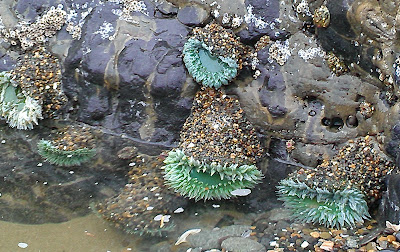It all began when my partner and I set out last Wednesday for a trip to Oregon. Our sojourn began with the purported reason for the trip: a panel presentation in Salem. The panel focused on the movie “Ballot Measure 9,” which details the events surrounding Oregon’s 1992 experience with virulent and even violent anti-LGBT politics. We both got to talk about the parallels between Ballot Measure 9 and Colorado’s Amendment 2, which happened in the same year. It was a great event with lots of folks in attendance, good discussion, and welcome political energy.
The next morning, over an excellent breakfast, we shared one of those wonderful conversations that make these friends so special. On this particular morning, we talked at length about life, aging, and dying. Our collective fear of death, despite all the philosophizing to the contrary. The difficulty of accepting its inevitability. The denial that makes us search for a cure to this or that, as if the end wouldn’t come if we could just cure this or that. And the realization that we (individually and collectively) keep doing things to prolong life (or at least to avoid shortening it). We take vitamins, eat blueberries, drink milk with Omega 3, exercise, avoid second-hand smoke, get regular check-ups, etc., etc.
We do these things in the name of improving the years we have, even as we cling to the rhetoric telling us that they’ll extend our life (indefinitely?). We do them even though we know that more years doesn’t necessarily mean more good years. As one of our friends put it, citing a Ted Talk she’d heard: Let's be clear: the years we add aren’t young years.
This wasn’t a morbid conversation, but a realistic one. We all die, after all. As I once read, despite all the magic of modern medicine, the mortality rate remains stubbornly at 100%. It was really good to have this discussion with such thoughtful people ... in this case, people who are much younger than I and who therefore have a different relationship with aging. It felt like a relief. I think about all this often, but don’t often have a chance to process it much.
But before I continue with this train of thought—because it will clearly not be as fun as photos of the Oregon coast—let me share tales of days on the beach, which is where we headed after breakfast.
Unlike our earlier Oregon trip where we were somehow blessed with lovely sunsets in the midst of storms all around, this time the weather was ferocious, and the sea shared the mood. It rained hard as we drove to the coast, watching rivers raging and spilling over their banks, the wind pushing the rain horizontally across the road. But we got lucky with the weather once we arrived. It seemed to stop raining every time we went out—and started again each time we got in the car or returned home from a walk.
Dodging between rainstorms (if not raindrops), we watched the stormy sea ...
 |
 cruised along the shore, spotting pussy willows in new bloom, huge logs thrown up by the storm, and trees left suspended by eroding soil ...
cruised along the shore, spotting pussy willows in new bloom, huge logs thrown up by the storm, and trees left suspended by eroding soil ...
and explored tide pools ...
During these lovely moments, our earlier conversation about death slipped into the background. But it was to come back to me, wrapped in a book I’d been reading.
On the plane trip to Oregon, I was reading The Hunger Games. I was curious about the hype surrounding this book / movie, and I had heard an NPR story that presented it as an anti-war allegory. So I decided to read it on this trip and got well into the first book of the trilogy before we arrived.
Then, one night, snuggled down in our nice cottage at the coast, I had a really awful dream about fear (terror, really) and betrayal and a sense of inescapable danger. I didn’t dare go back to sleep, and spent the next couple of hours trying to figure it out—in the shower, walking on the beach. It finally made sense to me in the context of the book and our earlier discussion of death. The story line of the book was the story line of my dream—not the details, not the characters, not even the events. But the feelings. And that story line shared a feeling left over from our earlier conversation about death and its inevitability.
I won't be finishing that trilogy. Partly because I think it's an awful story, made worse by at the fact of its incredibly positive reception and large following. But the larger reason is that it touched something so terror-stricken that to return to it would be insane.
Clearly, I don't feel so casual and intellectually distant from death and its inevitably—or its approach. But I sure don't need to encounter the stark reality of it through a story that's so disturbing in its own right. Instead, let me sort it through in the company of friends.
The rest of our time at the coast was wonderful, full of walks between raindrops, good food, and interesting conversations, capped off by dinner at a restaurant with an amazing view where Charlize Theron once filmed a movie scene.
I’ll definitely be back—to the Oregon coast and my gull, Mildred, that is. Not to The Hunger Games.









No comments:
Post a Comment